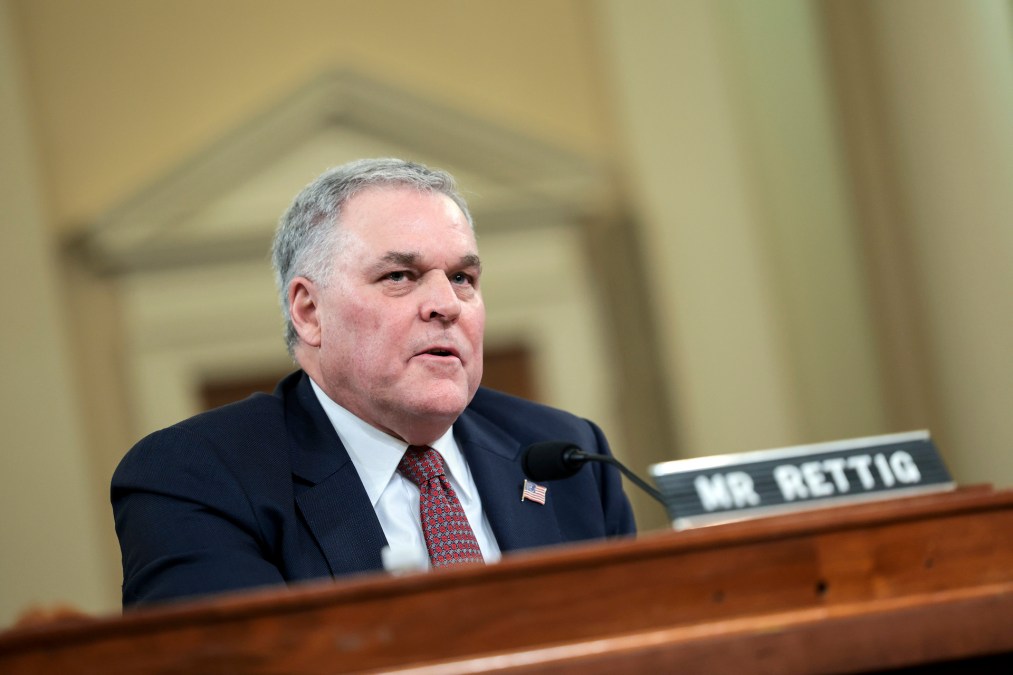IRS doesn’t have the tech to ‘backfill the gaps’ created by cuts, ex-commissioner says

Major cuts to the Internal Revenue Service workforce have left the embattled agency with holes that technology cannot fill, according to its former commissioner, opening up a “massive opportunity” for government contractors in the IT space.
Charles Rettig, who led the IRS from 2018 to 2022, said during an ACT-IAC webinar Thursday that the Trump administration’s message has been “we’re going to go with AI, we’re going to go with technology, we don’t need as many people on deck.” Losing that “human perspective,” however, comes with some very obvious costs.
“They don’t have the technology to backfill the gaps they’re creating,” he continued. “So I think you’re going to see, if your interactions are government-related contracts, you ought to be all over this situation. It’s a massive opportunity for folks in that arena.”
The personnel moves initiated by Elon Musk’s DOGE can’t help but feel “really personal, because they’re attacking our house,” Rettig said, but he urged any IRS IT workers who have been laid off to take their expertise to the private sector.
“Because you know what the government needs for what it’s doing. That’s really significant,” he said. “Every time there’s disruption, if you pause and eliminate the emotions, you find opportunities.”
Rettig, now a shareholder at Chamberlain Hrdlicka in the firm’s tax controversy & litigation and trust & estate practices, said that being on the receiving end of attacks on the IRS can be “brutal” — and at the tax agency, these attacks can be “long lasting” and come “about every decade.”
The IRS’s current turmoil includes the layoffs of 7,000 probationary workers, rumors of plans to cut the agency in half, and the move last week to put 50 IT executives on administrative leave. There’s also the looming uncertainty that will come if President Donald Trump’s commissioner nominee, former Rep. Billy Long, is confirmed by the Senate. The Missouri Republican, a real estate agent and auctioneer by trade, introduced legislation to abolish the IRS during his time in Congress.
“People who have talked to him indicated that he’s a really good people person. My general response is, he’s going to have to be a really good people person to get through that ‘abolish the IRS’ co-authored legislation,” said Rettig, adding that he expects all former IRS commissioners to “try to support” whoever is ultimately confirmed to lead the agency.
Rettig and six of his fellow former IRS commissioners wrote a New York Times op-ed in February that railed against the thousands of firings at the height of filing season.
“Aggressive reductions in the I.R.S.’s resources will only render our government less effective and less efficient in collecting the taxes Congress has imposed,” the ex-commissioners wrote. “It will shift the burden of funding the government from people who shirk their taxes to the honest people who pay them, and it will impede efforts by the I.R.S. to modernize customer service and simplify the tax filing process for everyone.”
Rettig said Thursday that the country “doesn’t move without federal employees,” so he and the other former IRS chiefs stand “willing to fight all kinds of battles.” But they’re also “choosing our moments where to surface” and “choosing our moments where not to surface.”
“The worry about raising our heads in some scenarios is the backlash on the agency could be significant,” Rettig said. “In this environment, if you rise up and use politically generated terminology, I think the agency is going to pay, and we’re not looking for that.”
Though he desperately wants to avoid putting additional heat on current IRS employees, Rettig did express concern several times Thursday about how the agency will be able to operate with diminished tech services. Rettig noted that the IRS hired more data scientists in recent years than ever before, and though he is “really not a technology guy,” he recognized the importance of letting data inform internal and external operations.
Broadly speaking, Rettig believes the country “should be among the leaders in technology,” using its tech prowess to “better serve” Americans and people abroad. Living up to those goals at the IRS with a substantially pared-down tech workforce will be a significant challenge.
“Is technology the future of the world and the future of the IRS? Of course it is,” he said. “Does that mean that the IRS shouldn’t have X number of employees? You can’t tell how many employees you need until you know what the technology is going to be.”






